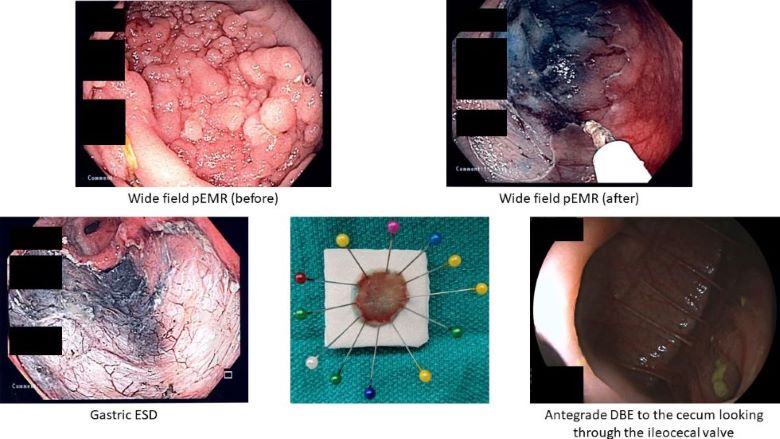Advanced Luminal Endoscopy Fellowship
Program Directors: Drs. Michael Sey and Brian Yan
Duration: 1 year
Positions available: Not currently accepting applications.
Funding: Salary commensurate with level of training (PGY6-8) is required for all applicants.
The Advanced Luminal Endoscopy Fellowship is a one year training program for individuals who are already ERCP/EUS trained or who do not require ERCP/EUS training for their future careers. Advanced luminal endoscopy techniques taught will include antegrade and retrograde double balloon enteroscopy, balloon assisted colonoscopy, capsule endoscopy, radiofrequency ablation of dysplastic Barrett's epithelium, endoscopic mucosal resection, and exposure to endoscopic submucosal dissection contingent on the endoscopy skill of the trainee. Cognitive aspects of managing small intestinal diseases and complex polyps will be learned in clinics that complement the endoscopy experience.
As an advanced fellowship, the year will be divided as follows: 70% clinical and 30% academic. Clinical activities will include endoscopy and clinics. Academic activities are a unique feature of this program and can be customized to meet the future career needs of the trainee. Examples of suitable activities include:
1. Research track: MSc in clinical epidemiology, MPH, certificate in research methods
2. Education track: MEd, teaching certificate
3. Administration track: MBA, MHSc, certificate in health administration
4. Clinical track: 80% clinical, 20% academic consisting of a research project with Drs. Sey or Yan
Those interested in pursuing tracks 1 – 3 can do so via distance education in Canada and abroad. All are part-time opportunities and require separate application and funding usually 1 year in advance. Master degrees typically require 2 years of part-time study whereas certificates can be completed in 1 year. Protected academic time will be made available for trainees to complete course work for those interested in pursuing these options. For trainees interested in purely clinical training, the year will be split 80% clinical and 20% academic. The academic component will consist of a research project suitable for completion within a 1 year time frame with the aim of having a manuscript submitted prior to finishing the fellowship. There are no on-call duties for fellows in this program.
Applicants are required to have salary support commensurate with level of training (PGY6-8) prior to start of the fellowship year and typically bring funding from their home institution or country.
Additional Documents
- Objectives for Advanced Luminal Endoscopy Fellowship (PDF, 208 KB)
- Schedule for Advanced Luminal Endoscopy Fellowship (PDF, 180 KB)
- Evaluation ITER for Advanced Luminal Endoscopy Fellowship (PDF, 125 KB)









